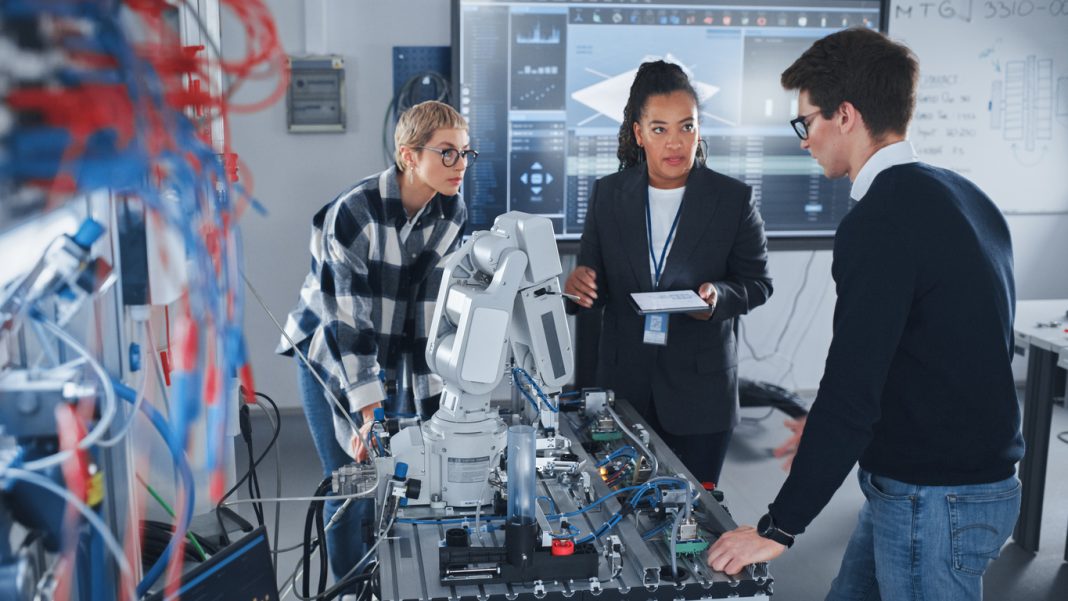Engineering graduates are very much in demand, but the changing nature of the workplace requires that higher education focuses on new skills and capabilities; John Mitchell, Director of the Centre for Engineering Education, explains
The past decade has seen significant change in engineering education, with many programmes worldwide starting to move away from theory-heavy and predominantly lecture-based delivery to active learning models with increased emphasis on engineering practice, transferable skills, and key graduate attributes. This shift has been, in part, in response to the desire of employers, but also due to pressure from students to study degrees that provide clear linkages to the impact they may have on the world. One of the core vehicles for this shift has been problem – and project-based learning (PBL). These pedagogic techniques stimulate students in relevant, industrial problems and projects, challenging them to apply and generate knowledge in an authentic situation.
Introducing PBL
Many institutions started this process by introducing separate activities. However, we have argued that ideally, these experiences must be integrated into a coherent curriculum. (1) In this model, students progress through taught sessions, project experiences, and supporting materials in a structured way with clear and explicit connections between theory and practice. In 2014, we introduced the integrated engineering programme (IEP) at UCL, (2) a radical revision of the entire undergraduate teaching across the engineering departments. It ensured that students engage in projects in their own discipline and learned to work effectively across disciplines, while developing teamwork, leadership, and communication skills.
Models of PBL
While it has been acknowledged that many elements of the UCL model can be adopted by others as outlined in the recent MIT report, (3) alternative models can be followed.
Introducing PBL has many challenges; staff must engage in a form of teaching that they may be unfamiliar with, students need support and preparation to help them get the most from the experience, and facilities need to be available to create the right environment for learning. These challenges, as well as the structures and constraints of the institution, will influence what is possible. In established institutions, this can be viewed as a change-leadership problem; the solution requires a model where sufficient disruption is enacted to make meaningful change to student experience while integrating those elements of the curriculum that either already work well or where change is not possible. For new programmes, careful consideration of the desired outcomes and unique selling points for the course is needed. However, while not as fixed as in existing programmes, even new programmes have significant constraints and require a programme deliberately designed to fit the local context. For example, we worked with NewGiza University (4) in Egypt to support their development of two new engineering programmes. The courses have much in common with the UCL IEP; an emphasis on practical development through project-based learning and the support of skills development, but are very much tailored to their specific national requirements and fundamental aims.
PBL in an integrated curriculum
In such a model, it is particularly important to consider the integration of all curriculum elements. Taking a view of a student journeying through the curriculum, rather than the top-down view we often take as academics, we see the need to provide a coherent and integrated structure. PBL then becomes the key integrative theme, repeating regularly throughout the curriculum and acting as a vehicle to draw together multiple learning activities. In this model, problem – or project-based activities are the points in the curriculum that integrate theoretical learning and instruction on skills development. They encourage students to better internalise their more traditional learning through application to authentic and industry-relevant problems or projects. This is a powerful learning experience and one that stays with the student.
Development for the future
Despite having made major reforms to the curriculum, new challenges continue to emerge. Most notably, the disruptive nature of AI is evident both in the classroom and in the skills that need to be developed in our graduates to meet the needs of the latter half of the twenty-first century. By their very nature, this future skill set is uncertain, but some clues exist. Our work has focused on the concept of fusion skills, (5) skills that explicitly acknowledge a future where human-machine interaction is inherent in the workplace. Some of these skills involve humans developing or training machine-based activities, whereas in others, AI provides humans with ‘superpowers’ to augment existing activities. We have considered how the development of such fusion skills can be brought into the existing curriculum, (6) noting that an integrated curriculum of PBL provides an ideal and highly agile framework.
Implementing PBL
The implementation of problem- or project-based learning in a higher education curriculum is challenging but also highly rewarding. In engineering, it has become established as a worldwide trend. This will not only provide better employability outcomes for the graduates of today but also a framework to adapt the curriculum to the needs of the future workforce.
References
- Mitchell, John; Tilley, Emanuela; (2024) The Role of Project Based Learning at the Core of Curriculum Development. Journal of Problem Based Learning in Higher Education, 12 (1) pp. 1-17. https://doi.org/10.54337/ojs.jpblhe.v12i1.9105.
- Mitchell, J. E., Nyamapfene, A., Roach, K., & Tilley, E. (2019). Faculty wide curriculum reform: the integrated engineering programme. European Journal of Engineering Education, 46(1), 48–66. https://doi.org/10.1080/03043797.2019.1593324
- Reimagining and rethinking engineering education, MIT, https://news.mit.edu/2018/reimagining-and-rethinking-engineering-education-0327
Image: © gorodenkoff | iStock - UCL and Newgiza University collaborate to train tomorrow’s engineers today, https://www.ucl.ac.uk/consultants/case-studies/2021/jan/ucl-and-newgiza-university-collaborate-train-tomorrows-engineers-today
- Daugherty, P. & Wilson, J. (2019) Human + Machine: Reimagining Work in the Age of AI. Boston, Mass. Harvard Business Press.
- Guile, David; Mitchell, John; (2022) Fusion Skills and Industry 5.0: Conceptions and Challenges. In: Bouezzeddine, Montaha, (ed.) Insights Into Global Engineering Education After the Birth of Industry 5.0. Intech Open Books: London, UK.


